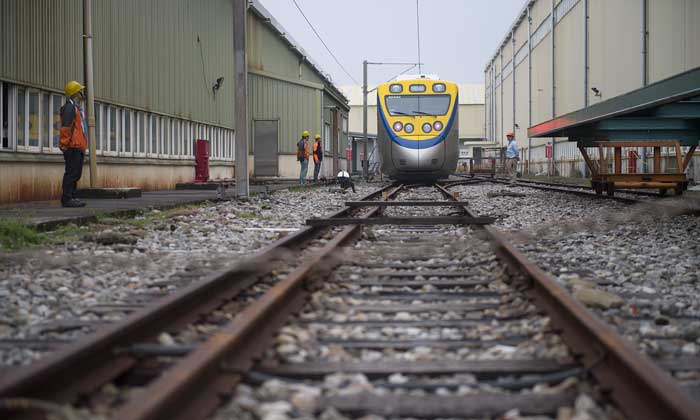China Railway Material Company (CRM), the biggest supplier for railroad construction materials has suspended all trading on its bonds worth 16.8 billion yuan. This is the first trading halt for a bond security and investor has been fearful since. CRM bonds are traded on platform offered by NAFMII. The company divulged that it is facing cash flow problem to repay the debt and is drafting a plan for protecting bond holders. Resumption of trading for the bonds is uncertain and not specified. CRM is the first corporation under the central government's supervision to freeze bond trades in order to address its debt issues. It is one of the handful of Chinese corporations facing default issues for their bonds as China faces economy slowdown. Shanghai Yunfeng, a subsidiary under Greenland Holdings, China's 3rd largest real estate developer, defaulted on 2 debt notes worth 2 billion. The company refused to work with investigation launched by NAFMII. Sinosteel Corporation, also a government owned steel company had defaulted on its debt notes repayment worth 2 billion. Baoding Tianwei, another government linked entity had reneged on its local bonds worth 4.5 billion in yuan. Analysts are concerned that the debt issue will hit the bond market for nonfinancial companies for future years.
CRM's decision shocked bond investors and may be a signal of more debt woes. New bond issuance will be affected negatively in terms of pricing and cost. Increasing financial costs will restrict companies from raising funds in the bond markets. Banks, insurance entities and fund managers have pulled back bond investments, according to CIC. 49 planned bond issuances were cancelled for March and April due to market fears. Private and State enterprises have long had debt troubles. However government has been trying hard to contain the problem. Bond investors have been enjoying government support to guarantee the face value of bonds repayment. Government has been stepping in with cash funding support to prevent default. The new policies launched to control economic slowdown are coming to an end. Government is retracting its support for inefficient companies and cut excess capacity. Investors are used to trusting government bailouts and rarely find any debt problems, until recently. They accepted the minimal financial transparency by companies issuing the bonds. Timely information were not available from companies and investors have difficulties finding a valid contact for information.
In the years before investor are more concerned on the issuer's connection with the government compared to disclosure of financials. It is not feasible anymore. Beijing policymakers have begun drafting rules in order to strengthen disclosure of financial info and credit rating for bonds. China Regulatory Commission for Securities and China Central Bank are heading the initiative. The guidelines could change the investing landscape by addressing the communication channel problem. Investors have been more careful since government issued orders to diminish overcapacity. Tianwei bond default made investor very nervous. Transparency issue forced NAFMII to investigate in detail the parent company for Yunfeng. Yunfeng has massive fund raising since 2012 to 2014, raising a total of 8.2 billion from private bond markets. Yunfeng transferred a few property to parent company Greenland and many feared bond default would happen when Greenland stops backing Yunfeng's debt. Bondholder tried requesting for financial reports from the underwriter but was not successful. Bondholders are prepared to sue Yunfeng and Greenland for lack of financial disclosures.
Investors questioned the bond underwriter status for Huayu Energy which missed repayment deadline for its bonds. Regulators are investigating any improper transfers from bond issuer's bank account to parent companies or subsidiaries. Tianwei is on the brink of default but share price were rising for the listed arm. The company arranged a few asset swaps since 2011 by transferring most valuable assets to Baobian Electric, a listed entity in Shanghai Stock Exchange. Baobian is profitable since 2014 and share price is steadily rising. However, Tianwei is suffering financially and had since defaulted on four term notes batches. Bond investors in the defaulting companies are trapped in a deteriorating credit environment. There is a real danger of high leverage for capital taken from retail investors. Wealth manager invested the proceeds in these bond markets.
China Railway Materials Company Limited (CRM) was reconstructed from China Railway Materials Commercial Corporate(CRMCC), the former Materials Administration Bureau of Ministry of Railways(MOR), with the approval of the State-owned Assets Supervision & Administration Commission of the State Council (SASAC).
CRM is an ultra-large supply chain services provider focusing on serving customers in the markets of railway materials, steel products and minerals in China. Headquartered in Beijing, CRM has established over 1,000 subsidiaries, branches and operation offices, including seven operating overseas subsidiaries in Hong Kong, the United States, Australia and Sierra Leone.
CRM provide railway materials supply chain services including procurement, supply, quality control, inventory management, logistics, processing and information management in respect of railway materials such as railway diesel products, steel rails, key components of rail vehicles and steel and cement for railway construction, to serve the key sectors of the railway industry in China, namely, railway operations, rail vehicle production and railway construction.
A systemic risk is surfacing due to widening spread between asset yields and debt costs. Credit rating institutions have so far declared the market for bonds as being safe, but still can succumb to random risks. Analysts fear there are more problems to come. Many bonds could be on the verge of downgrade and when that happens, there could be a huge wave of sell-offs.

